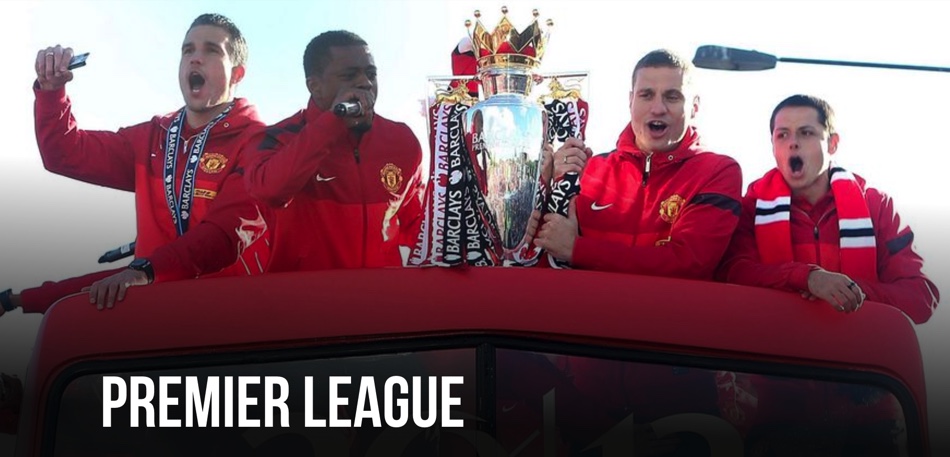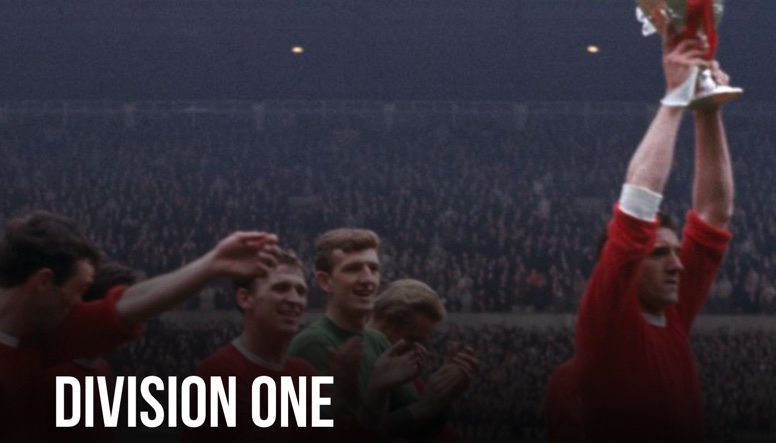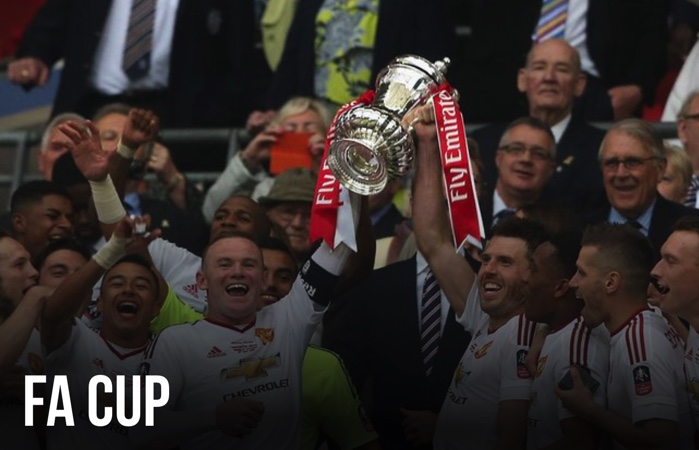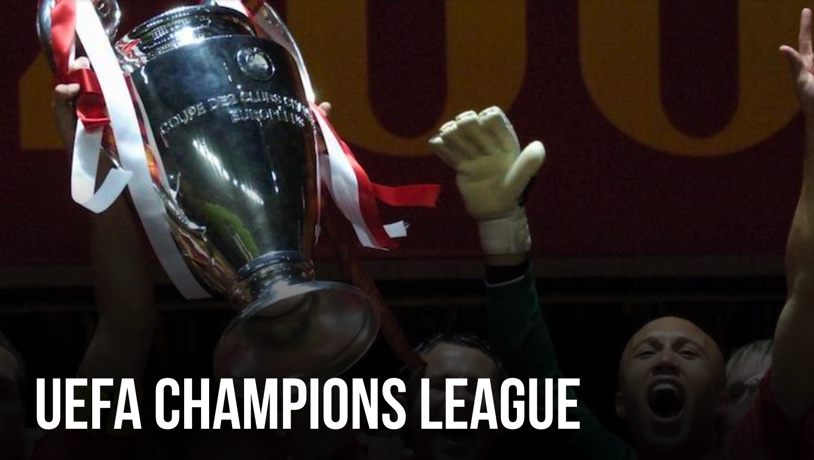
Manchester United have won a record 13 titles in the Premier League since the top flight of English football was given that new name in 1992.
Sir Alex Ferguson was the man who masterminded the triumph in the inaugural Premier League season, in 1992/93. The Reds went on to win titles in 1994, 1996, 1997, 1999, 2000, 2001, 2003, 2007, 2008, 2009, 2011 and 2013 – more than all other clubs put together to date
United’s title triumph of 2008/09 was achieved despite a slow start to the campaign and the rigours of fighting for seven trophies (the Club World Cup, Champions League, Premier League, FA Cup, League Cup, UEFA Super Cup and Community Shield). The Reds eventually clicked into gear, finishing the league season in style with 18 wins from the final 21 games. Only a point was required against Arsenal on the penultimate weekend, and a goalless draw at Old Trafford secured United’s 11th title since the Premier League began and the club’s 18th League Championship overall.
After Chelsea won the Double under Carlo Ancelott in 2009/10, the Reds wrestled the title back to Old Trafford with a success based on the foundation of an incredible home record. After the West Londoners were beaten in front of a jubilant home crowd in a virtual title decider in May 2011, a point at Blackburn sealed the 12th league success of Sir Alex’s remarkable reign with Wayne Rooney’s penalty ensuring United could not be caught at the top.
That title set a new record for the English top flight of 19 in total, but United were made to wait for the 20th after missing out in the 2011/12 season by the most agonising of margins – local rivals Manchester City snatched the prize in the dying seconds of their final league game.
Stung by this, the Reds vowed to bounce back and did so in style, actually winning the 2012/13 title race with four games to spare. Summer 2012 signing Robin van Persie underlined the impact he’d made in his debut season by scoring a hat-trick in the decisive 3-0 win over Aston Villa on 22 April 2013.

Manchester United triumphed in seven First Division Championships before the league was restructured in 1992.
The club’s first League Championship was secured in 1908, six years after the name of Newton Heath – league entrants in 1892 – was changed to Manchester United. A second title followed in 1911 but it wasn’t until after the Second World War when United really became a force in English football, under the leadership of Sir Matt Busby.
The Reds finished league runners-up in 1947, 1948, 1949 and 1951 before winning a third League Championship in 1952. The next few years were to see the birth of the famed Busby Babes. More Championships followed in 1956 and 1957 before the tragic events of the Munich air crash, which claimed the lives of 23 people, including eight United players. Busby rebuilt his team successfully in the 1960s, winning the title again in 1965 and 1967.
United had to endure a long wait of 26 years for the next title (finishing runners-up on four occasions in the meantime).

Manchester United have won the FA Cup on 12 occasions – a feat bettered only by Arsenal’s 13 triumphs – and have appeared in the final 19 times in total. The Reds are also the only club to appear in an FA Cup final in every decade since the War.
The club’s maiden FA Cup voyage was in 1890 under the name of Newton Heath but didn’t progress beyond the third round until 1902, after the change of monicker to Manchester United.
United won the competition for the first time in 1909 by beating Bristol City 1-0 at Crystal Palace but the Reds then had to wait until 1948 to reach another final – this time at Wembley, where Blackpool were defeated 4-2 by Matt Busby’s team. In the following decade, the Reds were runners-up in two consecutive finals, 1957 and 1958 – the latter coming just months after the squad was decimated by the Munich Air Disaster.
The FA Cup final in 1963 provided United’s first silverware after Munich, with Denis Law among the scorers as Leicester City were conquered 3-1.
The Reds really became FA Cup specialists in the late 1970s, reaching three finals in four years. Tommy Docherty’s side lost 1-0 to Southampton in 1976 but returned to Wembley in 1977 to triumph 2-1 and deny opponents Liverpool the chance to win the Treble. Dave Sexton was then in charge for a thrilling final against Arsenal in 1979 – after being 2-0 down, United came back to score two goals in the final five minutes only for the Gunners to snatch the Cup through Alan Sunderland with almost the last kick of the game.
Sexton’s successor Ron Atkinson won the FA Cup twice, against Brighton after a replay in 1983 and at Everton’s expense in 1985, when United defender Kevin Moran became the first player to be sent off in a final and Norman Whiteside scored a glorious winning goal in extra-time.
Sir Alex Ferguson guided United to no less than five finals in the 1990s, with four ending in triumph (the exception being 1995 when Everton won 1-0). The Reds beat Crystal Palace 1-0 after a replay in 1990 to give the legendary manager his first trophy in English football; in 1994 and 1996 the club completed the League and FA Cup double after winning finals against Chelsea and Liverpool respectively; then in 1999 United completed the second part of an historic Treble with a 2-0 win over Newcastle.
The Reds next reached the final in 2004. After beating arch-rivals Arsenal 1-0 in the semi-final at Villa Park, the task of seeing off First Division side Millwall at the Millennium Stadium in Cardiff was more straightforward. Goals by Cristiano Ronaldo and Ruud van Nistelrooy (2) won the match 3-0 for United.
United were back at the Millennium Stadium just 12 months later, in May 2005, seeking a 12th FA Cup success. Arsenal were once again the opponents in English football’s showpiece match, as if to exact their revenge for the semi-final results of 1999 and 2004. United dominated the match and created the best chances but ultimately failed to kill off the more defensively-minded Gunners. Consequently the FA Cup final was decided by a penalty shootout for the first time in its history, regrettably in Arsenal’s favour.
The FA Cup final went home to the new-look Wembley in 2007, with freshly-crowned Premiership champions United and previous title holders Chelsea locking horns in what seemed set to be a fitting curtain raiser for the revamped stadium. In truth, the final was a massive anti-climax as the Reds’ fatigue at the end of a long season allied to an ultra-conservative approach from Jose Mourinho’s West London side made for a stifling affair, which was eventually settled late in extra-time by a goal from Blues striker Didier Drogba.
A nine-year absence from the FA Cup final ended in May 2016 when Louis van Gaal’s United team travelled south to Wembley to face Crystal Palace. After both sides cancelled each other out for much of the contest, the Eagles took a shock 78th-minute lead through Jason Puncheon, only for Juan Mata to equalise three minutes later. In extra-time, the Reds suffered another blow when Chris Smalling was sent off for a foul on Yannick Bolasie but Jesse Lingard’s superb winner ensured the 10 men claimed the trophy for the 12th time in the club’s history.

The UEFA Champions League is the ultimate club competition in European football and Manchester United have won the trophy three times.
United first played in the European Cup in 1956. The decision did not go down well with the Football League due to the fear that it would affect the quality of domestic competitions. This was quickly quashed as the competition helped raise standards in the English game.
The Reds’ first match in the competition was a 10-0 win against Belgian champions Anderlecht. Matt Busby’s men reached the semi-finals in both 1956/57 and 1957/58 seasons, but the club’s involvement in the 1957/58 competition, however, will be forever linked to the Munich Air Disaster. United’s draw in Belgrade and subsequent semi-final defeat against AC Milan were overshadowed by the tragic death of eight United players.
From tragedy came hope as Sir Matt Busby built a new team. Another semi-final in 1965/66 was followed by the club’s first European Cup success in 1967/68 when goals from Bobby Charlton (two), George Best and Brian Kidd at Wembley gave England its first European Cup winning side against Benfica.
The club had to wait a long 26 years to compete in the competition again, now expanded and renamed the Champions League. United reached the semi-finals in 1997 before winning the Cup for a second time in 1999.
The final in Barcelona’s Nou Camp stadium looked all but lost as United trailed 1-0 going into the three minutes of added time at the end of the match. Goals from Teddy Sheringham and Ole Gunnar Solskjaer left Bayern devastated and United’s 50,000-strong throng of supporters in ecstacy. Sir Alex Ferguson had finally emulated the achievement of Sir Matt Busby.
European glory proved elusive for United in the following seasons. Their defence of the trophy in 1999/00 was ended by a 3-2 home defeat by eventual winners Real Madrid in the quarter-finals, while two semi-final appearances (2001/02 against Bayer Leverkusen and 2006/07 against AC Milan) ultimately ended in elimination despite United holding the lead in both ties.
In May 2008, in Moscow, the Reds sealed their third European Cup triumph – 50 years after the Munich Air Disaster and 40 years since the club’s first win in ’68 – with a dramatic penalty shootout victory over Chelsea. Ryan Giggs, making his 759th appearance in a red shirt, thus breaking Sir Bobby Charlton’s all-time record, scored what turned out to be United’s winning penalty. Edwin van der Sar confirmed United as Kings of Europe with his subsequent penalty save from Nicolas Anelka and sealed a historic double for the Reds.
Further final appearances followed in 2009 and 2011 where the Reds would find Barcelona impossible to beat, first in Rome and then at Wembley. Three runs to the final of Europe’s premier club competition in four years was a record to be proud of, however.
